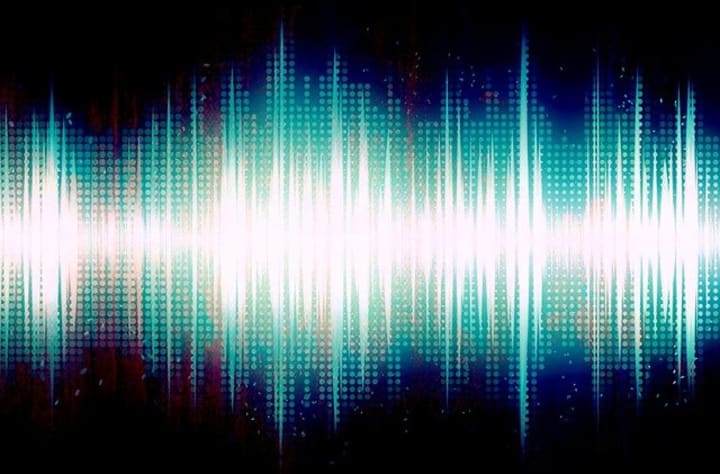
In the vast emptiness of space, there is no sound. But that doesn't stop people from screaming.
Some people scream when they're excited, like when they're finally able to walk in zero gravity. Others scream when they're scared, like when they see a meteorite hurtling towards their ship.
And then there are those who just enjoy the feeling of screaming into the void. It's exhilarating and freeing, and it reminds them that they're alive.
No matter the reason, screaming in space is a common occurrence. And it's one of the many things that make life in space so unique.
1. In space, no one can hear you scream. It's a phrase that's been used to describe the vastness and emptiness of space. But what if you did scream in space? What would happen?
2. Screaming in space would be a very bad idea. The reason being is that there is no air in space. Without air, sound waves cannot travel. So, if you were to scream in space, the only person who would hear it would be yourself.
3. Another reason why screaming in space is a bad idea is because it could damage your vocal cords. When you scream, your vocal cords vibrate at a high frequency. In the vacuum of space, there is nothing for these vibrations to travel through except for your own body. This could cause serious damage to your vocal cords and possibly other parts of your body as well.
Why screaming in space is impossible

In space, there is no air. And without air, there can be no sound. That’s why screaming in space is impossible.
Some people might think that because there is no air in space, there is also no gravity. But that’s not true! There is gravity in space. It’s just that it’s a lot weaker than the gravity we experience here on Earth.
So if you were to scream in space, the sound would just be silent. You might be able to see your mouth moving, but nobody would be able to hear you.
It's a common misconception that astronauts screaming in space would be heard by others nearby. In reality, the vacuum of space prevents sound waves from traveling, so any screams would be silent.
If you were to scream in space, the air molecules surrounding your vocal cords would vibrate. But since there's nothing for those vibrations to travel through, the sound wouldn't carry. Instead, it would just disappear into the vacuum.
So if you find yourself in a situation where you need to scream for help in space, don't bother - no one will hear you!
The dangers of trying to scream in space

It is impossible to scream in space. The vacuum of space would quickly suck the air out of your lungs, and without air, you can't make a sound. But what if you could? What if you somehow had access to a never-ending supply of air? Would it be safe to scream in space then? As it turns out, no. It would still be incredibly dangerous to try and scream in space. The problem is that the human body is not built to withstand the stresses of producing such a loud noise.
The act of screaming puts a lot of strain on our vocal cords and lungs. In space, there is nothing to absorb the sound waves produced by a scream, meaning they would just bounce back and forth inside our bodies. This would cause serious damage to our internal organs, and could even kill us.
The benefits of not being able to scream in space

There are many benefits to not being able to scream in space. For one, it would be very difficult to do so. The lack of air pressure means that there is nothing for the sound waves to travel through, so they would just dissipate into nothing. Additionally, it would be incredibly dangerous to try to scream in space. Without the ability to properly anchor oneself, one could easily float off into the vast nothingness and be lost forever. Finally, not being able to scream in space is actually a good thing for astronauts' mental health. In such a high-stress environment, having an outlet like screaming can help prevent things like anxiety and depression.
The benefits of not being able to scream in space are many. For one, it eliminates the risk of damaging your vocal cords. The lack of air pressure also means that there is no need to worry about your lungs collapsing. In addition, it prevents the spread of germs and bacteria, which can be a major problem in enclosed spaces.
How space a vacuum and how sound cannot travel through a vacuum?

A vacuum is a space entirely devoid of matter. Sound is a type of energy that travels through the air, or any other medium, as a vibration of pressure waves. In order for sound to travel, there must be particles present for the sound waves to bounce off of. Because a vacuum has no particles, sound cannot travel through it. Think about shouting in outer space. No one would be able to hear you because there are no particles present for the sound waves to bounce off of. The same principle applies to all types of sound waves, including music and noise.
So how do we know that space is a true vacuum? We can detect the presence of particles by their effects on light waves. Particles cause light waves to scatter in different directions when they collide with them.
In a vacuum, there are no particles for sound waves to travel through. Sound waves are created by vibrating particles, which create pressure waves that travel through the air. In a vacuum, there is nothing for these waves to travel through. This is why you cannot hear sounds in space. There are no particles for the sound waves to travel through. In order for sound to be heard, there must be something for the sound waves to travel through, such as air or water.
What a scream would actually sound like in space and how it would be different from what we expect?

A scream in space would be very different from what we expect. For one thing, it would be much quieter. The vacuum of space would absorb the sound waves, so it would be barely audible to anyone nearby. Even if you were right next to someone screaming in space, you might not be able to hear it.
But that doesn't mean a scream wouldn't be heard at all. The sound waves would still travel through the body of the person screaming. So if you were inside a spacesuit and someone screamed next to you, you would definitely feel it. The vibrations would travel through your suit and into your body.
Why we would actually be unable to hear a scream in space

There are a few reasons why we would actually be unable to hear a scream in space. One reason is that sound needs a medium to travel through, such as air or water. In space, there is no air, so the sound has nothing to travel through. Another reason is that sound waves require molecules to bounce off of in order to be heard. In space, there are no molecules for the sound waves to bounce off of. Finally, the vacuum of space would cause the sound waves to dissipate very quickly, so even if we were close enough to hear the scream, it would be very faint by the time it reached us. There are a few reasons why we would actually be unable to hear a scream in space. One reason is that sound needs a medium to travel through, such as air or water. In space, there is no air, so the sound has nothing to travel through.
The vacuum of space would make it impossible for sound waves to travel. Even if you were screaming at the top of your lungs, the only thing that would be heard is the blood rushing through your veins and the air moving past your vocal cords. The lack of atmosphere means that there is nothing for the sound waves to bounce off of, so they just dissipate into nothing.
In order for sound to carry, there must be particles for the waves to travel through. The air around us is made up of molecules that can vibrate and carry sound waves from one place to another. But in space, there are no molecules to vibrate. So even though you may be making a lot of noise, nobody else will be able to hear it.
What are sound waves?

Sound waves are vibrations of air molecules that travel through the atmosphere and are detected by our ears. The speed of sound is determined by the type of medium it is travelling through. For example, sound waves travel faster through solids than they do through liquids or gases.
The reason sound needs a medium to travel through is because molecules can only vibrate so much on their own. When they bump into other molecules, they transfer some of their energy, which causes those molecules to vibrate as well. This chain reaction continues until the energy from the original vibration has dissipated. So, if there were no molecules for the vibrations to bounce off of, the sound would just disappear into nothingness.
How sound waves work

Sound waves are created when something vibrates. The vibration causes the air particles around it to move and create a pressure wave. These pressure waves travel through the air and eventually reach our ears, where they are converted into sound.
Why do sound waves need a medium to travel through
Sound waves cannot travel through a vacuum because there is nothing for the pressure waves to move. They need a medium, such as air, water, or solids, in order to propagate. Sound waves move more slowly through denser mediums like water or solids because the particles in these mediums are closer together and take longer to move than particles in gases.
Conclusion
It is important to remember that nobody can hear a scream in the vacuum of space. This is because sound waves cannot travel through the vacuum of space. Therefore, if you find yourself in a situation where you are screaming in the vacuum of space, nobody will be able to hear you.
screams are silent in space because there is no air for the sound waves to travel through. This is why astronauts have to communicate using other methods, like radios. Next time you watch a movie set in space, remember that the characters would actually be unable to hear each other if they were screaming.
About the Creator
Success
Over five years ago, I began writing. As well as writing, I am a social media marketer. My writing helps me create engaging, entertaining, and informative content.






Comments
There are no comments for this story
Be the first to respond and start the conversation.